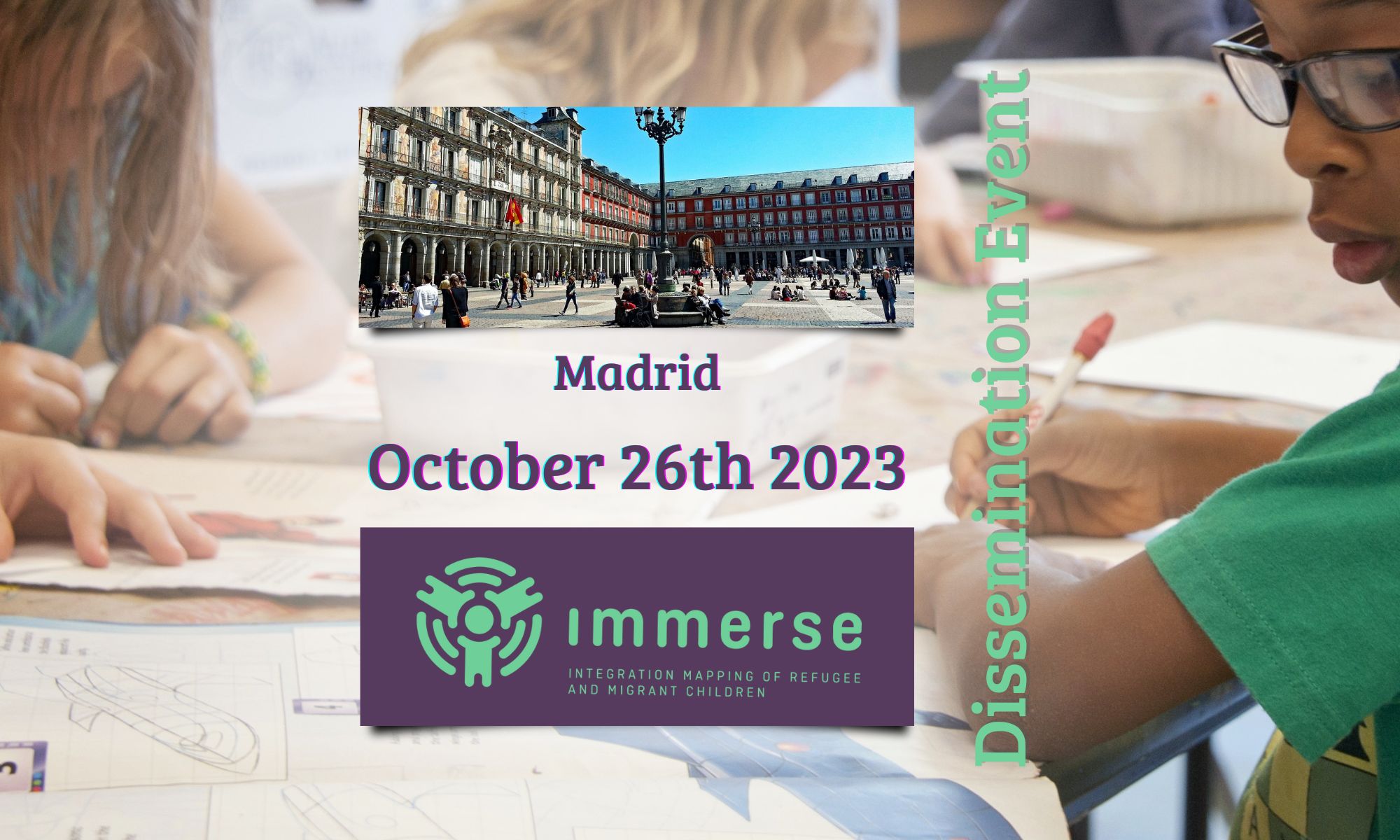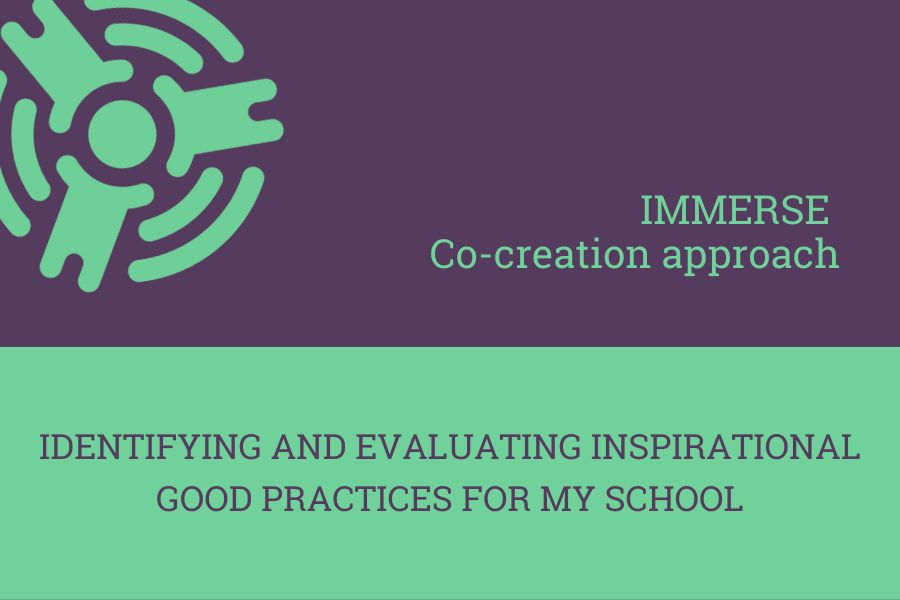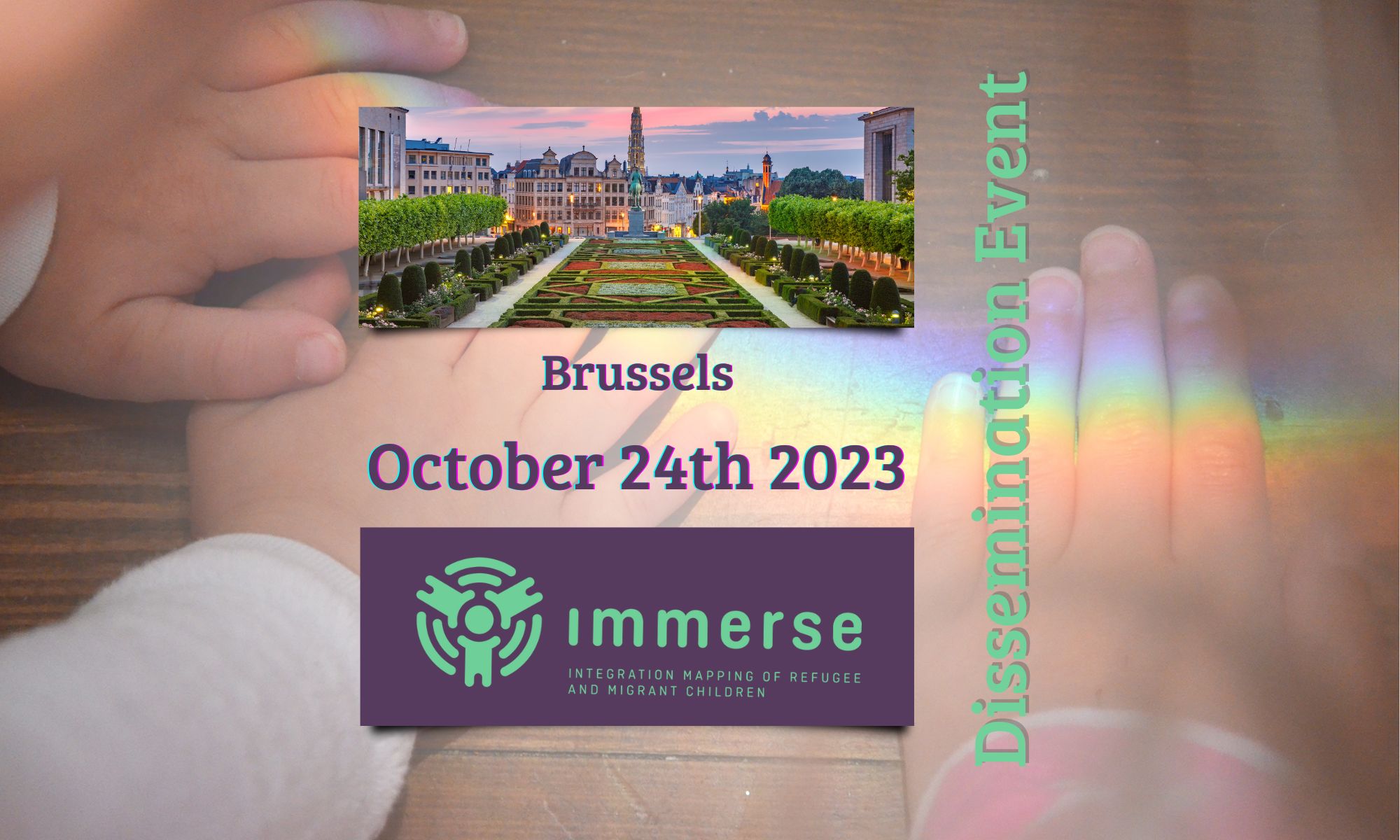Good Practices on refugee and migrant children integration
The consortium has identified and collected relevant Good Practises on the integration of refugee and migrant children at schools and other learning experiential environments. These Good Practises incorporate the different dimension of the integration process and had been disseminated and mainstreamed to foster their replicability in Europe.
IMMERSE research partners collected 60 good practices across Europe that were evaluated through a comparative analysis. The findings of this comparison and the in-depth analysis of 12 case studies provide a wealth of contextualised data and crosscutting features regarding the landscape of implemented or ongoing socio-educational initiatives targeting migrant and refugee children in Europe.
The production and study of this rich set of good practices, together with the results of other IMMERSE research activities, is aimed at the development of a set of recommendations and advocacy initiatives to be implemented in order to achieve political and educational change at the national and EU level in the field of migrant and refugee children’s socio-educational inclusion.
The Good Practices are available in two formats
Online Digital Database of good practices and resources in social integration of refugee and migrant children
The 60 Good Practices, together with additional 24 Policy Papers and 25 tools and resources, are included in this digital practical tool aimed at identifying supportive environments, educational conditions and practical resources relevant for the social integration of refugee and migrant children.
All these resources can be freely navigated or filtered by selecting among “Category”, “Country of origin / implementation”, “Language” or “Compliance with the Dashboard Outcomes”.
Working Paper “Collection of Good Practices at the National and EU Level”
This report provides a detailed description of the Good Practices, including:
- An overview of the methodology adopted, focusing on the quality criteria, approaches and areas of interest considered.
- A comparative analysis of the selected 60 good practices, offering a comprehensive overview of their features and an in-depth analysis of the key findings related to seven areas of interest.
- An extended description of 12 selected case studies in order to present a variety of inspirational initiatives that can shape ideas on how to address the inclusion of children with a migrant background in European societies.
- Some considerations and first reflections about policy recommendations addressed to the educational and policy sector to promote political and educational change at national and EU levels.



